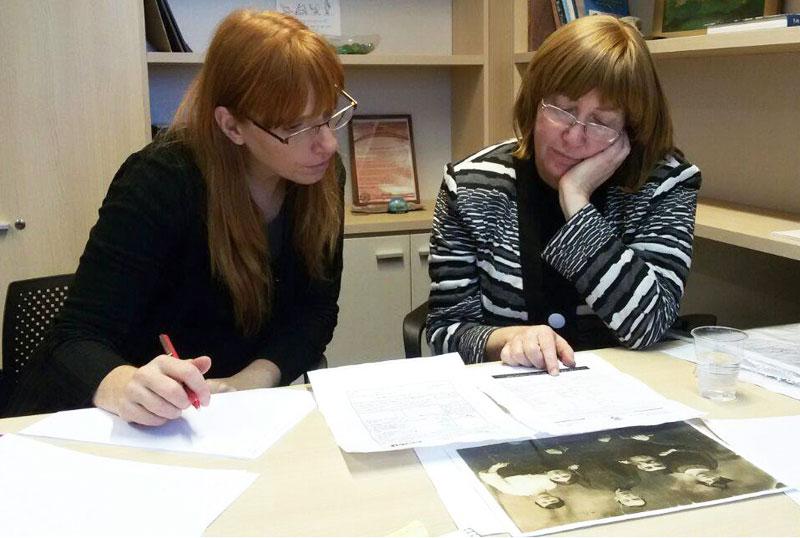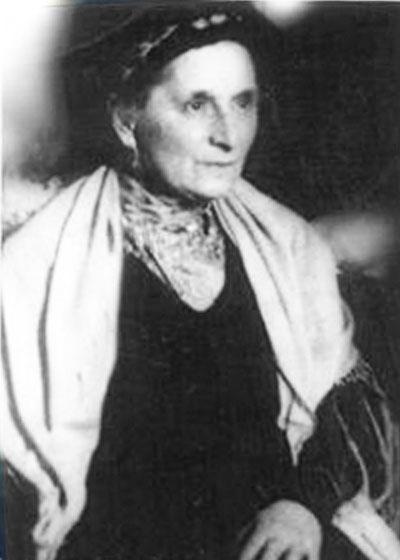In early 2014, Leah was contacted by a relative to verify information on a Page of Testimony, a special form designed by Yad Vashem to restore the personal identities of each of the six million Jews murdered during the Holocaust. Leah, who had never heard about Pages of Testimony, decided to check if any such forms were on record for her own family. The virtual treasure trove of information she proceeded to find in Yad Vashem's online Central Database of Shoah Victims' Names (to date containing the names of some 4.5 million victims) far exceeded her expectations, and has helped her fill in the gaps and personalize the details of the tragic fate of her family during the Shoah.
Leah began by investigating her father's side of the family, with roots in Hamburg, Germany. Rabbi Joseph Tzvi Carlebach, Chief Rabbi of Hamburg, was murdered by the Nazis in 1942. Leah found over 70 search results in the Names Database with the same family name and place of residence. After carefully analyzing each one, she finally discovered the first names of her cousins, who she knew had been murdered as children during the Holocaust. "After seeing their names, the enormity of the tragedy really hit me," recalls Leah. "So many people. It is quite unbelievable."
After learning the names of her cousins, a personal family letter took on new meaning for Leah. The writer of the letter, dated October 1941, describes reservedly but fearfully their intention to "move apartment" (a euphemism for deportation, used to avoid censure), when remaining family members come to pay a visit to "Aunt Hanna," who was "calm and peaceful, the fruit of a perfect faith in God." According to a Page of Testimony submitted in 1978, Hanna Schlesinger, aged 91, was transported to Terezin on 15 July 1942 and killed by the Nazis nine months after the events described in the letter transpired.
As Leah had already surmised, the research regarding her family on her mother's side was far more complicated. This branch of the family was from Poland, and it was always assumed that only those who had managed to immigrate to Eretz Israel before the war had survived. Her grandfather, whose parents and sister were murdered in the Holocaust, rarely spoke of his family's past.
However, one surviving relative managed to flee wartorn Europe with most of the Mir Yeshiva students to Shanghai through the efforts of the Japanese consulate. Mostly, he conveyed stories about the family before the war, never going into detail about the actual fate of the victims during the Shoah. Using the advanced search option on the Names Database, Leah entered his name as a submitter of information and found that he had filled out seven Pages of Testimony for his brothers and additional family members who were murdered. "It seems that although he could not bring himself to speak of them, he was prepared to commemorate them on Pages of Testimony," says Leah. "I had previously thought that they had all been killed together, but it turns out that I was wrong. Some had been killed during the Tykocin massacre; one had fled to Russia but was murdered after liberation on his way back to Bialystok; and one testimony points to another relative who was buried alive in a killing pit. This has made me think of my grandfather, and those family members who survived. How on earth did they receive the terrible news about each one, one after the other? One by one, and yet they still hoped… and then they heard about the final sibling. "
The investigation of her maternal grandmother's family was even more challenging. Here too, Leah had always been told that most of the family, who lived in Svir, Svencionys and Vilna, had been murdered. The name Resnick was very common in the region, and it was therefore hard to trace her family members. All that changed when Leah found out her grandmother's maiden name, Svirsky, listed on the first Page of Testimony she encountered. Painstakingly making her way through all the Pages of Testimony listing that name, Leah eventually made contact and managed to meet a distant relative residing in Israel.
Carlebach remains determined to continue her search. "Using the wealth of information I have discovered at Yad Vashem, I am now telling my family about what happened during the Holocaust years. I am not giving up. I will continue to research and ask questions, until, with God's help, I find the answers."










